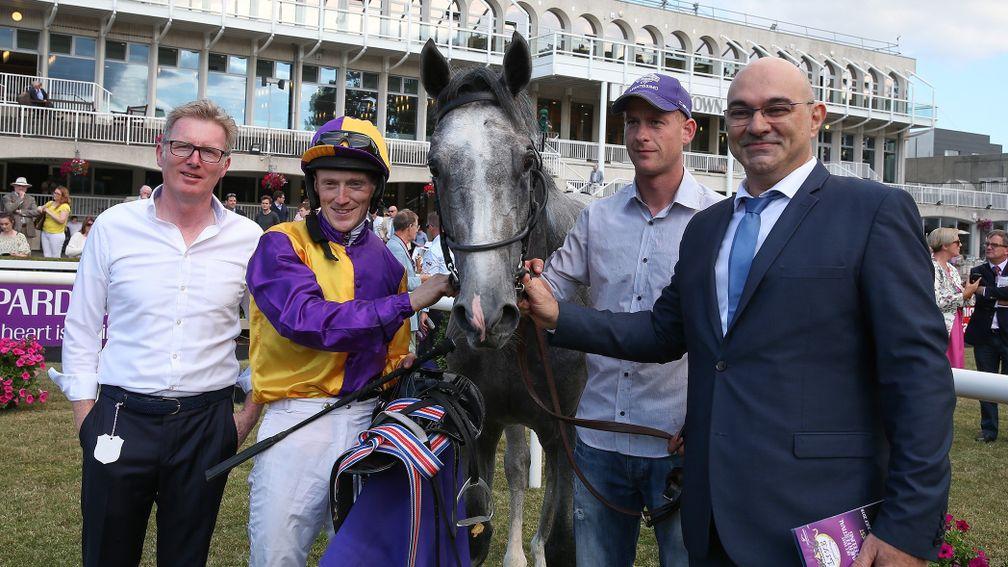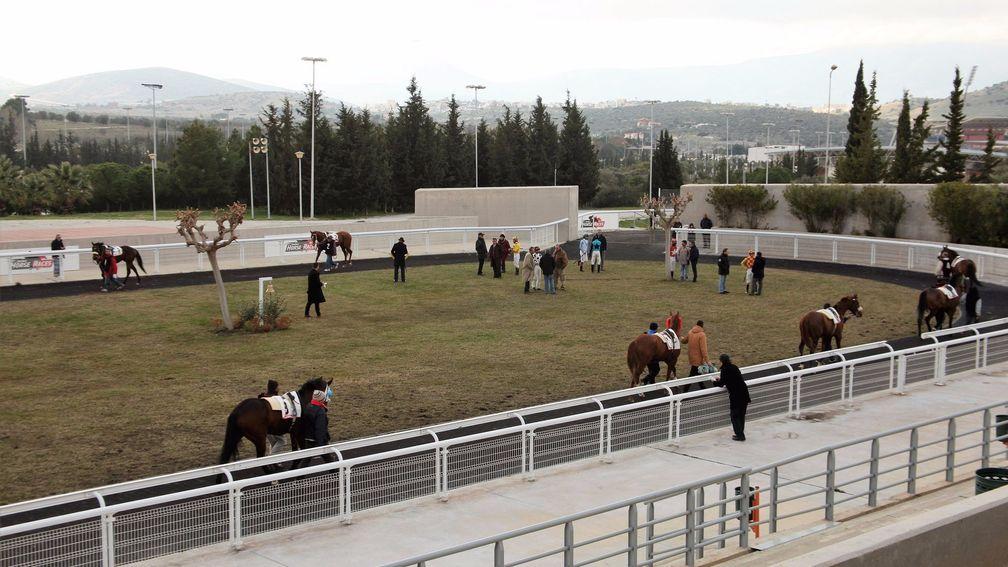Greek buyers out in force at Tattersalls as racing returns from the abyss
Almost 50 horses heading to the country's track at Markopoulo

Greek racing has crumbled like the Parthenon in recent times but there were indications at Tattersalls this week that it will not be a case for the archaeologists just yet.
Riven by issues concerning regulation for some time, matters declined even more sharply at the start of this year when the country’s only track, Markopoulo, lay idle for four months owing to a dispute.
Although the sport has resumed, it is now woefully short of runners and, as field sizes make the racing world go round, there is a move to address it.
The auction house noted a considerable rise in advance interest from Athenian buyers for the July Sale and it played out as such in the ring with an estimated 48 of the 535 lots sold now heading for the racecourse just south of the capital.
Some were claimed by individual owners and trainers but others were purchased by Hellas Horse Races SA, the company which organises the racing and gambling.
"The target is clear, we are buying as many as we can!" explained Kostas Loukopoulos, the track’s racing manager and part of the deputation.
"We don’t buy at big prices because Greece is not yet in a situation that the owners can afford that, but all the owners and trainers came here to make a new start. We were some months closed and now the law has changed, the company feels very strongly about racing, and the feeling has changed as well among the owners, as you can see from the purchases."
As a bloodstock sale can be confusing to even the initiated with English as their first language, Loukopoulos and his team act as something of a facilitator and liaison, as well as a supplier. Largely using Oliver St Lawrence, the experienced bloodstock agent, it was picking up two and three-year-olds which are likely to be re-offered to owners once they have been transported to Markopoulo.
"We have about 1,700 stables, and now we have 300 horses, because of the crisis," he explained.
"There was a very big period of privatisation of the racing, it was about four years since the last conversation was had about that.

"It was also necessary to Government to reconsider the rent of the racetrack, which was enormous. They seem to understand the situation that we need racing, we have people who love it and there is a tradition. We’re hopefully making movement in every aspect of the industry."
Among the improvements in the pipeline is a modernised handicapping system, likely to be introduced in September after consultation with former BHA chief assessor Phil Smith and the International Federation of Horseracing Authorities.
For now, though, it is the raw material that they need.
"They were bidding against each other at times because the horses we like in Greece are those that can perform on the dirt track - USA pedigrees mostly, or those who have proved themselves on the dirt," Loukopoulos said. "So, many owners were targeting the same ones.
"We bought some two-year-olds from Goresbridge too. With yearlings, you need to have owners who are ready keep them for a while until they start running, so this stopped some years ago when the breeding industry in Greece, in reality, has collapsed, and people like more to buy ready horses. But this is also starting to change a little bit and we’re having conversations to make that move as well."
Tattersalls has acknowledged the support from the Greek industry by sponsoring a meeting, and as well it might. Although the purchases were largely of the unremarkable, four-figure variety, they nudged the clearance rate up to its staggering 93 per cent through the three days and gave many horses the chance to continue a useful racing life elsewhere. Provided Mr Smith gives them a chance, that is.
More Tattersalls July Sale reports:
James Harron is the new king of the ring after landing 450,000gns top lot
Third time lucky for 350,000gns Inverleigh at final July Sale session
Mick Flanagan buys July Sale session-topper At Last for 420,000gns
Published on 13 July 2019inNews
Last updated 14:32, 13 July 2019
- Arqana announces appointment of Thomas Huet as consultant
- 'We think she's quite good' - excellent week for Study Of Man continues with Newbury winner Sinology
- Oppenheimer's Dubawi half-sister to Tattersalls Book 1 sale topper set for Newbury debut on Friday
- Bolsena adds to impressive legacy of Reem Three with Newmarket romp
- Initial entries for the Tattersalls Cheltenham April Sale unveiled
- Arqana announces appointment of Thomas Huet as consultant
- 'We think she's quite good' - excellent week for Study Of Man continues with Newbury winner Sinology
- Oppenheimer's Dubawi half-sister to Tattersalls Book 1 sale topper set for Newbury debut on Friday
- Bolsena adds to impressive legacy of Reem Three with Newmarket romp
- Initial entries for the Tattersalls Cheltenham April Sale unveiled